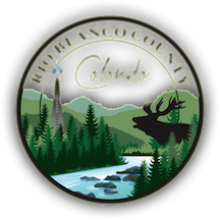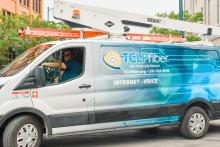
In Rio Blanco County, you’re almost more likely to find a dinosaur fossil than a human being. This rural county in northwestern Colorado has about two people for every square mile, but its sparse population is not stopping it from advancing an ambitious open-access broadband initiative.
More than a year into the rollout of the network plan, Rio Blanco County (RBC) has already succeeded in soliciting $2 million in matched funds from the Colorado Department of Local Affairs (DOLA), contracted a network operator, and secured easements (land-use rights) from the county’s two largest municipalities to begin construction on the FTTx network. The bulk of the funding will come for the County budgeting for the infrastructure.
The network will initially touch every block and ultimately be expanded to deliver a fiber connection to each premise in the two towns.
Rio Blanco’s network will be a four-tier open access arrangement. The county will own the infrastructure - from the data center to the optical network terminal (ONT) within the home and everything in between. A private company, Colorado.Fiber.Community, will operate the network. And a combination of independent middle-mile Internet service providers and last-mile value-added resalers will offer services directly to residents.
For Rio Blanco County IT Director, Blake Mobley, this arrangement is what makes Rio Blanco County’s initiative both unique and feasible. Mobley gave a presentation at the MountainConnect conference in Vail, Colorado, where he spoke about the challenges and the early successes of Rio Blanco County community broadband network. Because the network is open-access, he said, the county can focus on what it does best - laying the groundwork and setting larger policy objectives, not taking the mantle of Internet service provider:
We look at this just like a county building county roads. You build those roads out. You as a county aren’t anticipating a large return on that investment from those roads up front. It’s the utilization of those roads that builds an economy that’s going to be to your benefit.
Mobley, who along with presenting at MountainConnect also spoke with Chris on the Community Broadband Bits podcast this week, emphasized that it was the business community that came to the county in search of better broadband options. In his words:
The drive to do this project originated with the community itself. They came to the commissioners about a year and a half ago...to say... "You’ve got to solve this problem. We have businesses that have come in and looked in communities, large and far-from-large ones, that said we don’t have the bandwidth we need and we’re not going to locate here. We have residents that are having challenges."
Community members demanding better broadband from municipalities is hardly a new phenomenon. Local demand for community broadband networks has forced the hand of municipal and county governments in multiple Colorado locations. In the state of Colorado, underserved communities that wish to build a network must vote to override a barrier (Senate Bill 05-152) that prevents municipalities from building their own broadband networks. Last November, a resounding 82 percent of Rio Blanco County citizens voted to override this barrier. Rio Blanco County joined five municipalities (Boulder, Yuma, Wray, Cherry Hills Village, and Red Cliff) and one other county (Yuma) in overriding SB05-152 and thereby exercising their right to build a community network.
Along with providing FTTx capacities, Rio Blanco County’s open access network plan includes a goal of expanding of cellular towers and emergency services. The county intends to construct 11 towers initially, which will serve up to 80 percent of the community, and provide FTTB connections of 25 Mbps upstream and 5 Mbps downstream, slightly better than the FCC definition of basic broadband.
RBC believes that by the end of 2015, it will have begun construction on its FTTB network in the county’s primary urban areas, the towns of Meeker and Rangely, as well as its more rural areas. For Mobley, a 5th generation Rio Blanco County resident, it is important that the project is done in a way that is transparent for both community members and private partners. He joked:
I’m building the solution for my friends and family so I have a vested interest to do a very good job because if I get fired and have to leave that will be very uncomfortable.







